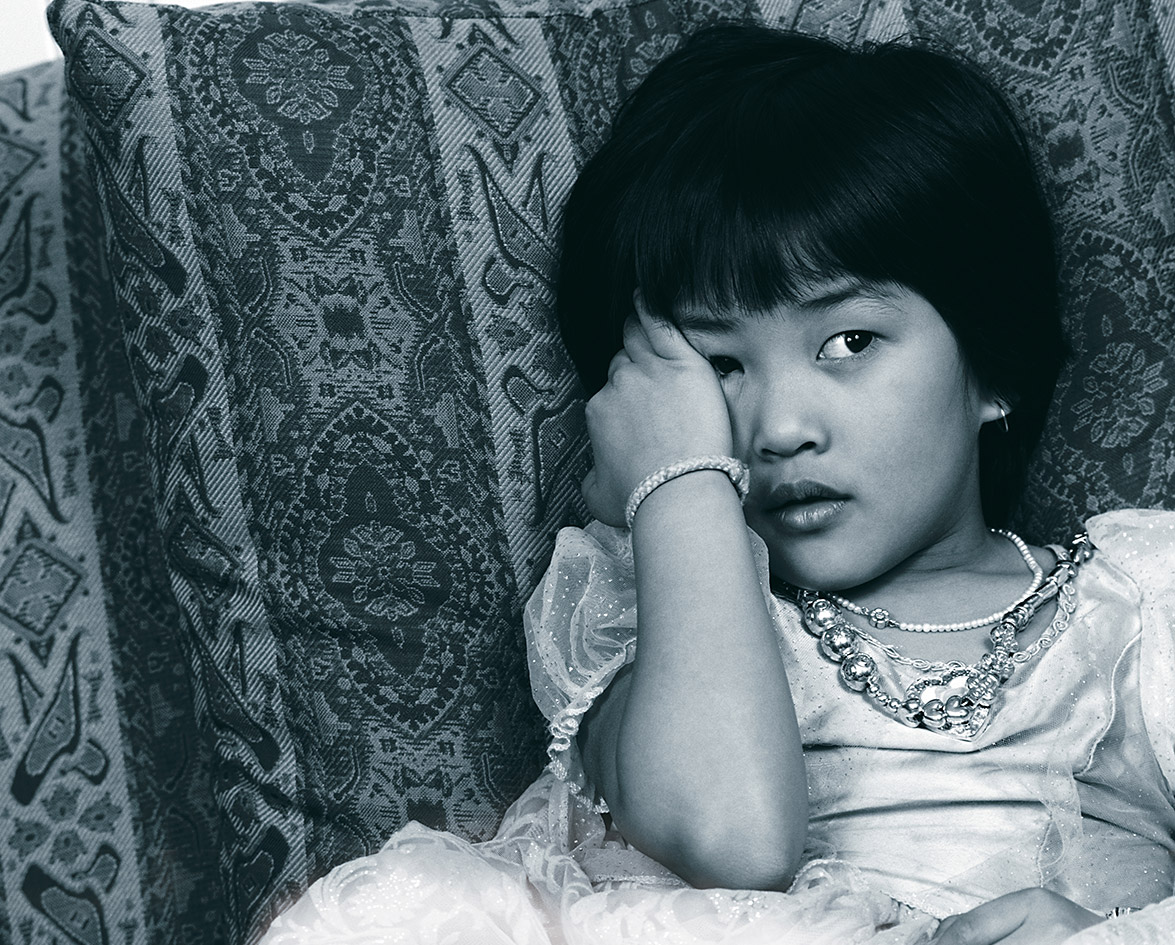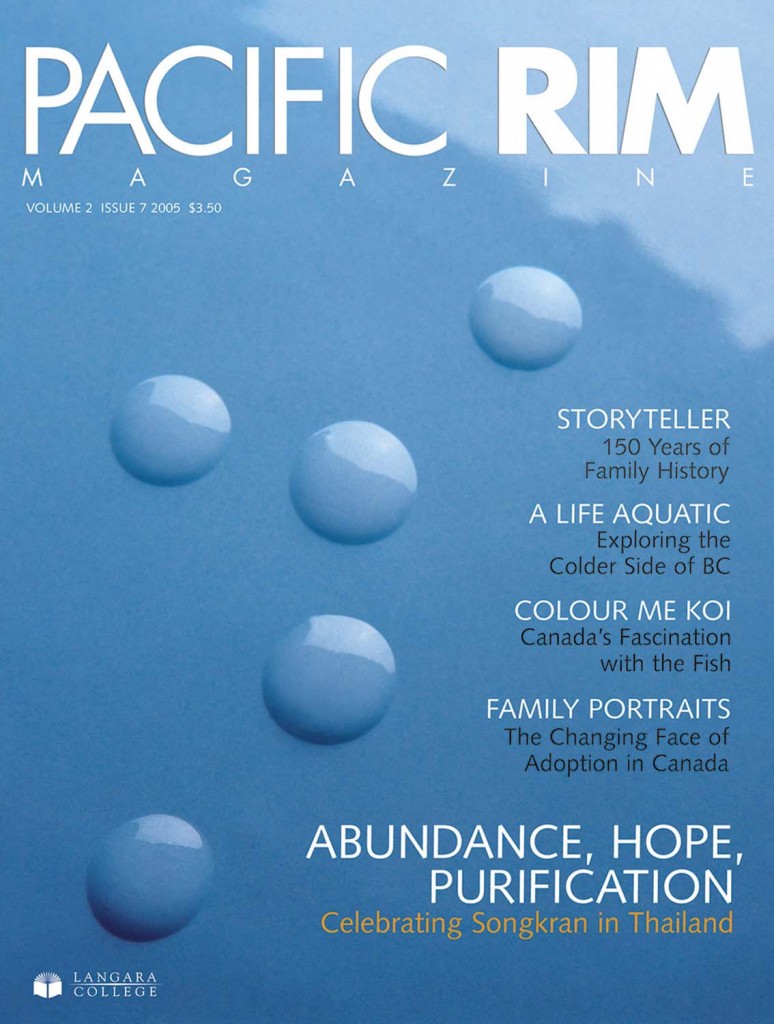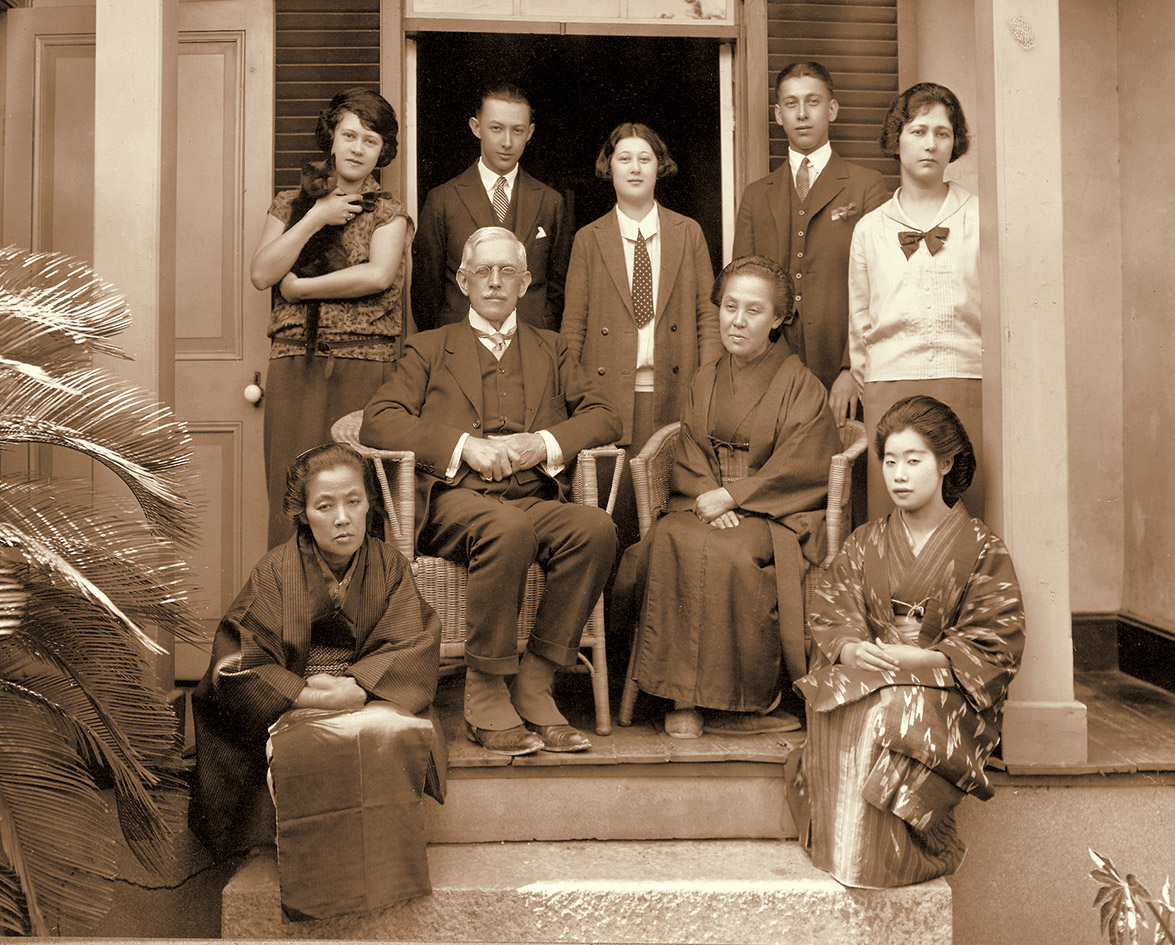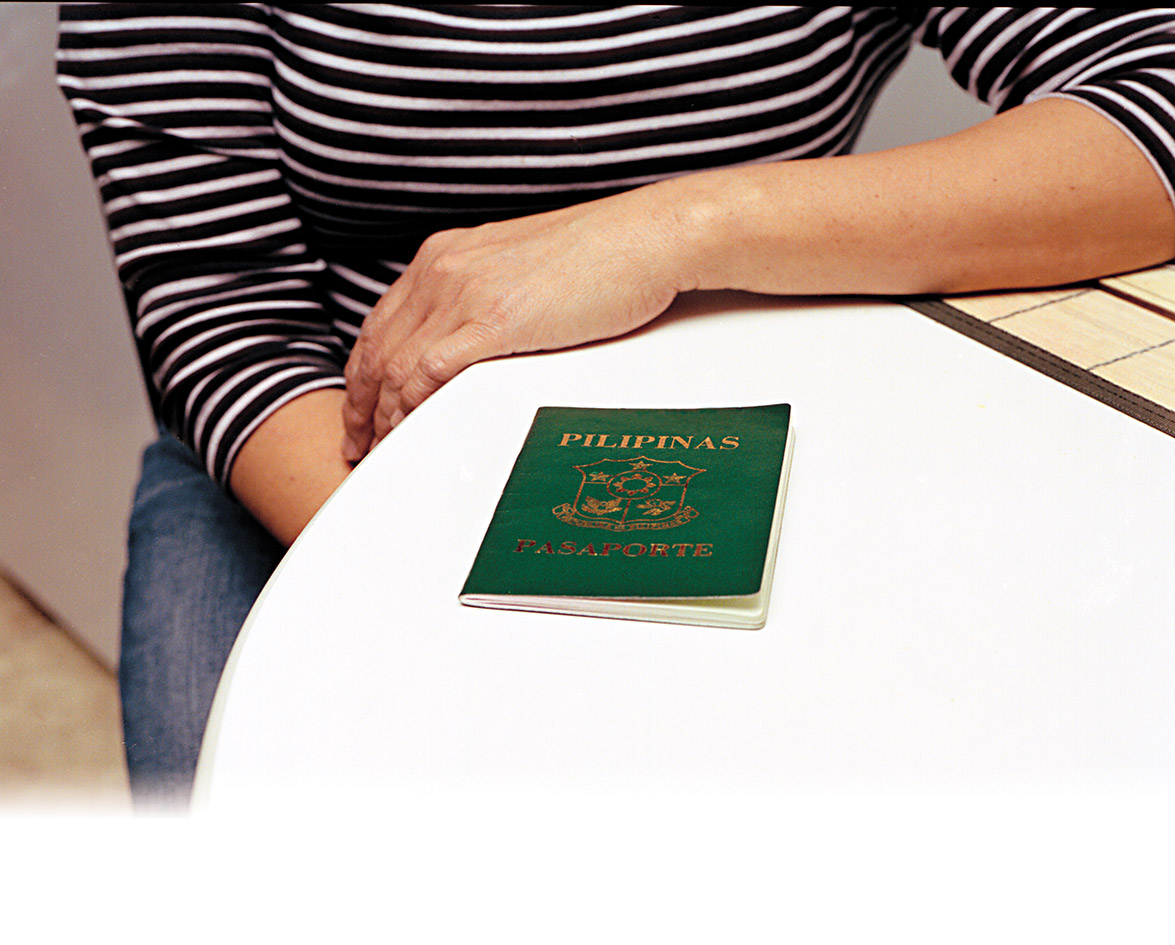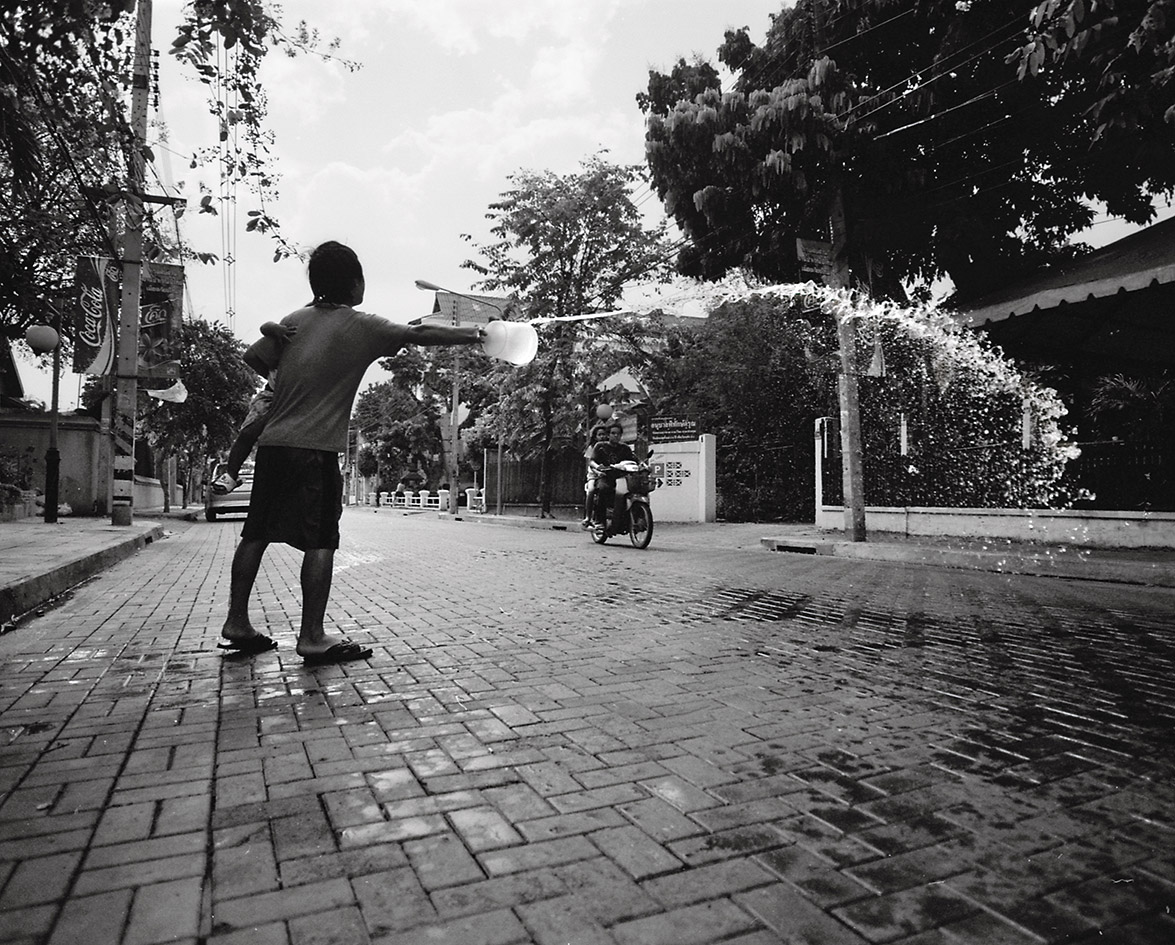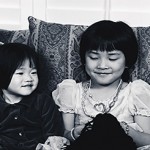
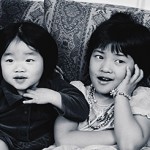
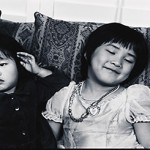
Steve Whan and Danielle Soulodre are waiting in a hallway. Within moments, they’ll welcome two daughters into their lives. Other expectant parents anticipate similar moments. Some have been through this before; others – Steve and Danielle among them – are first-timers. They wait, not outside the delivery room, but in a hotel hallway in China. They wait for employees from the local orphanage to arrive with the children they are adopting. “It’s amazing,” says Whan joyfully. “Suddenly you’re parents.” Whan and Soulodre are just two of a growing number of Canadians with adopted children from China. Of the one million children available, about 15,000 are adopted internationally. In fact, there are over 120 families in British Columbia with children from China. Some of these families have found unique ways to ensure their children’s heritage is a central feature of their everyday lives.
Families With Children From China of B.C.
Steve, Danielle, and their daughters Samantha and Virginie belong to Families with Children from China, B.C. (FCCBC). Part support group and part advocate agency, FCCBC grew out of informal gatherings started in the mid-1990s. The organization plans events that reflect the culture of the children’s birthplace. It strives to enlighten the public about the experience of – and the issues around – adopting from China. The group also raises funds for Chinese orphanages, and is also a source for people who seek information on international adoptions. During the 14-month-long adoption process, couples are carefully scrutinized before they are matched up with a child. Applicants must be over 30 years old. There is an eight per cent quota for single applicants, and same-sex couples are not accepted. Once they are matched up with a child, applicants receive a profile that should include medical history, some background information, and possibly a photo. Unfortunately for some, their background is nonexistent. In the case of abandoned children, their home address is usually the place where they were found. In some cases, the address is made up.
The Choice To Start A Family
Age motivated Ted and Shannon Hougham to adopt. Ted was 50 years old and Shannon was 44 when they decided to start a family. Both worked with children with Fetal Alcohol Syndrome in the Northwest Territories and wished to avoid having to deal with its effects on their child. They chose China because drug and alcohol abuse is rare among Chinese mothers. In 1999, the couple flew to China with 10 other families and the adoption agents. Those who were adopting for a second time were a valuable resource for first-time parents. They swapped baby clothes that were either too large or too small. Collectively, they dealt with their children’s health problems, such as scabies – a common affliction among children living in crowded quarters. The families used the same agency to arrange adoptions with an orphanage in Gaoming, in Guangdong province. When the Houghams first met their daughter, she was 11 months old. Her name was Gao-Xiu Jia. All children from the Gaoming orphanage are given the surname Gao. Xiu means girl. Jia means beautiful and pretty. Ted and Shannon chose Jia as her name.
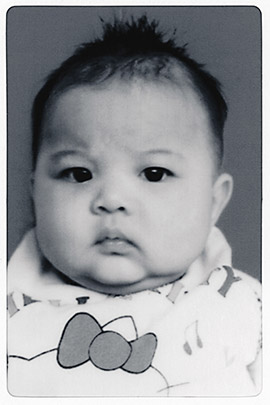
Being Open About Adoption
Six years later, Jia sits quietly, drawing pictures of butterflies and princesses while her parents flip through a scrapbook they assembled to document her arrival. A passport-size, colour photo of a baby girl with rosy, cherub cheeks is near the front. This is the first image the Houghams ever saw of Jia. Ted kept it close to his heart until they finally met. Other photos in the book show a smiling little face staring up at the loving faces of her new parents. On one of the documents from the orphanage, an employee wrote: “We hope she grows up cute and able to be adopted by a good family and have a happy life.” They are very open with Jia about her adoption. They use storybooks, such as Robert Munsch’s When You were Born in China, to explain to Jia how she came to be with them.
We hope she grows up cute and able to be adopted by a good family and have a happy life.
The Houghams have a photo of the children who were adopted by the group. Most were babies; some were between three and five years old. The oldest girl in the photo was 12 years old and was adopted by a couple from Nova Scotia. A few years prior, a Halifax family adopted the girl’s best friend. Once the friend arrived in Halifax and got to know the neighbourhood, she convinced a family on the block to adopt the girl from the photo.
The Ouellete Family
Nancy Ryder and Francis Ouelette live in a tastefully renovated, older home in North Vancouver with their daughters Maya and Pascale. Maya is a spirited five-year-old. She models the new horseback-riding hat that her grandmother gave her. After a quick costume change to a shiny blue dress, Maya pirouettes around the room. She studies French Immersion at school and loves horseback riding and ballet. Her mother hopes to enrol her in Chinese dance, but feels Maya isn’t ready for the strict discipline the art requires. “Maya has a little trouble with authority figures, just like her mother,” Nancy says with a laugh. Pascale puts on the riding hat and signs Maya’s name in baby sign language. Nancy and Francis sign to ease Pascale’s transition into English. It was especially helpful when she first arrived. Pascale shrieked violently until she learned to communicate her needs through sign – most notably the signs for bottle and food. Francis and Nancy chose to adopt after they found out they weren’t able to have children of their own. Instead of spending large sums of money on fertility clinics, the adoption option seemed a better route to follow. Friends, who’d adopted from China, recommended they consider it. Francis and Nancy believe it’s important to integrate Chinese culture into their family life. They actively participate in FCCBC events, and until recently, hosted a monthly meeting for families waiting to adopt from China. The idea of being a family is paramount. Each night, Francis and Nancy say “I love you” in Mandarin to both girls. Nancy and Francis appreciate Vancouver’s rich Asian culture. The children get to see “other people they look like.” She has, however, been followed around the supermarket on more than one occasion being bombarded with questions: “Are they your daughters? Your real daughters?” “By blood?” “Are they sisters? Real sisters?” Although brazen, the questions aren’t asked maliciously. People are curious about a white mother with Asian children. “You get used to the intrusiveness of strangers,” says Nancy. Some people even enquire about international adoption. Sometimes strangers are supportive. Francis found that the Chinese encouraged international adoption. He remembers getting the thumbs-up sign when people saw him with his daughters. “The Chinese often see the situation as sad,” he says. “They say ‘they are better off with you.'” Francis is a grateful man. “We are better off with them.”





